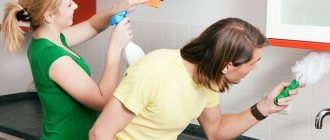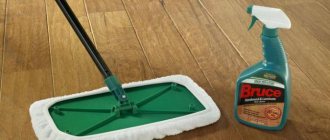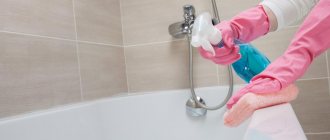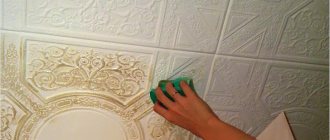In the frantic pace of life of a modern person, it is increasingly difficult to find time for household chores.
But dirty plates, forks and spoons will not clean themselves, and sooner or later you have to roll up your sleeves and begin the unpleasant cleaning process.
Lifehacks and secrets on how to quickly wash the dishes will turn your daily homework into an easy, fun activity.
Use lifehacks to remove difficult stains
Burnt food at the bottom of a pot or pan is every dishwasher's worst nightmare. Here are some tips to help remove dirt easier and faster.
- Place empty, dirty dishes on the stove and select the highest temperature. After some time, drop water inside the container. If a drop hisses and instantly evaporates, feel free to follow it with a whole glass of water at room temperature. As soon as the steam dissipates, mercilessly scrub off the stains with a wooden spatula.
- Fill the dishes with water, add detergent and boil for 10–20 minutes. After half an hour, when everything has cooled down, start cleaning the contaminated surface.
- Use these recommendations.
How to wash dishes with complex stains using folk remedies
Dishes are cleaned depending on the type of dirt. To wash greasy bowls, pots and plates, use only gel. But complex pollution is much more difficult to deal with. To quickly wash kitchen utensils, they use life hacks from experienced housewives.
How to clean dishes with stubborn stains:
- Nagar. Soot often appears on the bottom of pans, which cannot be removed with washing gel. To wash dishes easily, treat problem areas with toothpaste. After 30 minutes, dirt can be easily removed with a sponge.
- Boiled milk and dried dough. First, very dirty dishes should be washed under running cold water. When the contaminants begin to linger, turn on the hot water.
- Fat. To remove greasy marks on pots, pans or plates, use laundry soap. To enhance the fat-dissolving effect, mile chips are mixed with soda in a 3:1 ratio. Dissolve 4 tbsp in ½ liter of warm water. l. mixtures. To wash the utensils, use a regular sponge soaked in the solution.
If rice or buckwheat is stuck to the bottom of the pan, add ½ liter of water and boil over low heat for 10-15 minutes. After the procedure, you will be able to wash dishes without using metal scrapers and hard brushes.
How to clean dishes with centuries-old plaque:
- Soda Ash. 15 g of powder is dissolved in 1 liter of water. Use it to wash enamel pots or stainless steel items.
- Dry mustard. A solution of ½ liter of hot water and 3 tbsp will help you easily wash cutlery. l. dry mustard. Forks, spoons, and knives are soaked in it for at least 30 minutes, after which they are rinsed with cold water.
- Stationery glue. Fill a saucepan with 5 liters of water and place it on the stove. After 5 minutes, add 50 ml of office glue, 2 tbsp. l. laundry soap shavings. Place cutlery and shallow plates into the solution for 10-15 minutes. After removing dirt, wash the dishes under running water.
- Vinegar and citric acid. To wash stainless steel or aluminum products, prepare a special solution. 25 g of citric acid and 150 ml of vinegar essence are dissolved in 1 liter of hot water. Soak a sponge in the solution and treat contaminated surfaces.
The situation is worse with decanters, which cannot be penetrated with a sponge. To wash glass utensils, fill it 1/3 with soapy water and add 1 tbsp. l. eggshell. Holding the hole tightly, shake the decanter thoroughly several times, after which the soap solution is drained.
Don't clutter your sink
We've all experienced the situation where one dirty dish in the sink turns into a stinking mountain of dishes. Of course, it’s not always possible to wash everything at once, so you can use the following technique.
When you have the first and deep enough candidate for cleaning (for example, a saucepan or a large bowl), fill it with hot water and detergent, place it next to the sink (not in!) and put other dirty dishes in it.
This way, firstly, you will keep the sink empty, and secondly, you will prepare the dishes for express cleaning. Once soaked in hot water, it will clean up faster, you will be less tempted to leave it for later, and the kitchen is unlikely to turn into an Augean stable.
General rules to speed up the process
In order for the routine process of washing dishes to go as quickly as possible, you must adhere to some rules:
- We don't accumulate dirty dishes. While the pie is baking in the oven and the meat is frying in the frying pan, there is enough time to wash previously used cutting boards, knives, and bowls.
By starting to clean up immediately after eating, you can forever forget about mountains of dirty plates, cups, forks, spoons and other kitchen utensils.- We organize a workplace.
In order not to delay the cleaning process, it is necessary to determine in advance the place where to put soapy plates, cups, spoons, and where to dry already clean dishes. It is important to organize your workplace so that detergents, sponges, and wipes are always at hand. - We prepare a variety of dishes care products. The more variety of detergents you have on hand, the faster and easier it is to wash a large number of kitchen utensils.
Do not forget about rubber gloves (the delicate skin of your hands must be protected) and a beautiful apron. Bright household items not only help organize the process of washing dishes, but also simply lift your spirits.
Don't put everything in the dishwasher
Even if you are the proud owner of a dishwasher, you still cannot avoid washing dishes in the traditional way. At least if you don’t want to damage kitchen utensils and expensive equipment.
Here is a list of things that should not be put in the dishwasher:
- Cast iron products. They require more careful and caring care.
- Nice knives. They will dull faster if you wash them in a machine rather than by hand.
- Crystal. May crack or scratch.
- Wooden crafts. May become deformed.
- Cookware with non-stick coating. It all depends on the brand: some models are dishwasher safe, others are not. If you don't know for sure, it's better to use good old hands. Otherwise, your frying pans risk losing their professional suitability.
- Copper utensils. May change color.
- Plastic. The exception is for products made of hard plastic, on which the manufacturer has indicated that they can be washed in a machine.
- Gilded dishes. The machine can ruin the noble coating.
- Dishes with labels. When exposed to high temperatures, they can peel off and clog the dishwasher.
How to wash kitchen utensils by hand in 5 minutes in the sink?
Clear, coordinated actions will help you wash a large amount of dirty dishes very quickly:
Plates, forks, pots and pans are cleared of food debris (the trash bag is prepared in advance).- Dirty dishes are sorted (by material, degree of contamination).
- Particularly dirty kitchen utensils are soaked in soapy water.
- Lather a few drops of liquid detergent on a damp sponge.
- Surfaces treated with a soapy sponge are rinsed under running water.
Already clean dishes are carefully laid out in a drying rack or on a special napkin.
Cleaning the kitchen
| Washing dishes | Cleaning the oven | Microwave cleaning | Cleaning the refrigerator | Cleaning inside kitchen cabinets | Cleaning the kitchen hood |
| 350 rubles. | 350 rubles. | 350 rubles. | 350 rubles. | 500 rubles. | 300 rubles. |
Tell the manager how you want your home to be transformed, and we will make these wishes come true! Cleaning services can be provided the very next day. We work seven days a week from 8:00 to 21:00. Choose a time convenient for yourself and... relax, while we put your home in order!
Rules for washing dishes made from various materials
There are rules and sanitary standards governing this procedure in public catering establishments:
- The crystal is rinsed in warm water using a soft cloth moistened with an alcohol solution;
- enamel products should not be washed with hard sponges that damage the coating;
- Cast iron cauldrons are washed in warm water using detergent. So that no traces remain, lubricate with oil and wipe with a napkin to remove any remaining grease;
- glass products should be washed with soapy water and warm water;
- Aluminum cookware is cleaned with soda and, after rinsing, wiped with a dry towel.
Dishes are made from different materials. When cleaning it, it is necessary to take into account the material and use the correct means for washing kitchen utensils. This will allow you to get the job done quickly and efficiently.
What products will help you wash dishes quickly?
If due to some circumstances (allergy, reluctance to use “chemicals”) special detergents and cleaning products are not suitable for you, then you can always use folk remedies. They are absolutely safe for health, and the quality of washing is not inferior to store-bought products.
- A combination of baking soda and vinegar will help get rid of fat. If desired, vinegar is replaced with citric acid: the effect is the same, but the smell is favorably different.
- Mustard powder and soda ash will help out when you need to remove heavy dirt or grease.
- Laundry soap can also remove grease from cutlery. You can prepare a detergent: grate soap, add salt or water. To aromatize, add a drop of aromatic oil.
- Burnt milk will be removed by using an activated carbon tablet, thoroughly crushed beforehand.
- Sodium burate will help get rid of stubborn stains. You can buy it at the pharmacy. It is a natural antiseptic, which means it can not only clean dirt, but also kill germs.
- To make glass kitchen utensils and crystal products sparkle, ammonia will come to the rescue.
When resorting to these tips, do not forget that only cutlery without a non-stick coating can be washed with soda, otherwise it will be hopelessly damaged.
Washing kitchen utensils is an activity that you cannot escape. But with the help of our advice, the process will begin to go quickly and “painlessly”.
How to wash children's dishes
Baby dishes and bottles require special care. All mothers know about this. They need to be washed more thoroughly than the dishes of adult family members. Since the children's body is very susceptible to pathogenic bacteria that form in leftover food. To wash children's dishes, you must use natural products or special cleaning liquids for caring for children's dishes. When choosing a product, you should pay attention to the age recommendation 0+ and the natural composition. Also, for better cleaning of dishes, it is recommended to sterilize, especially baby bottles.
Top 5 common mistakes
What can you do wrong when doing basic washing of dishes? Here are the top 5 common mistakes:
- Too much detergent. The generous soul of a Russian person does not allow him to put just a drop on a sponge. The result is an excess of surfactants on “cleanly washed” dishes.
- Wash the pan from the inside only. Men often sin with this, trying to rationalize any activity. As a result, even a new frying pan gradually becomes covered with “armor” of soot on the outside.
- Lack of care for glassware. A familiar picture from films is a bartender polishing glasses with a rag. These guys know what they're doing! If you let the glass dry naturally after washing, it will leave traces of drops. Over time, they will turn into a layer of cloudy plaque.
- Using inappropriate equipment. Old rags instead of sponges, hard washcloths and patterned dish brushes - the list goes on. Anything tougher than a typical foam sponge should be used sparingly and only as a last resort. And materials that rot in a humid environment (cotton, for example) are completely prohibited.
- Scraping dried food. The dirty plate had already dried out - and then you remembered about it. Take your time and fill it with water to loosen anything stuck to it.
What is the best way to wash earthenware, porcelain and glass?
The above materials are also quite demanding in terms of the washing process. To wash them from grease and not spoil objects, you should remember the following nuances:
- Faience. The water should be warm; hot liquid will crack the coating. We use neutral detergents; there is no need to whisk them to foam. Darkened objects are additionally wiped with salt or baking soda.
- Porcelain. We act very carefully, limiting ourselves to warm water if possible. We wipe the darkened areas with a cloth soaked in turpentine or ammonia.
- Glass. Here, too, no hot water is used, which causes the glass to become dull. It is better to use warm salt water. And for rinsing, water in which the lemon peel has been soaked is ideal. Fireproof glass is washed only after it has cooled. Otherwise, the material may crack due to temperature changes.
Today, plastic utensils are increasingly used in everyday life. To wash it from grease, just take a little cold or lukewarm water and any mild detergent. But hot water begins to deteriorate plastic, its surface becomes rough and even gives off an unpleasant odor.
Stages
When washing dishes, it is important to maintain consistency. There are only 5 stages:
- Pre-cleaning.
- The washing up.
- Rinsing.
- Drying.
To remove pieces of food, it is best to use a wooden or silicone spatula. Metal objects may leave scratches on the cookware.
What are the results of our work?
- crystal glasses will shimmer in the sun;
- the yellow coating will disappear from porcelain, earthenware and glass plates;
- cupronickel silver cutlery will shine with a noble shine;
- pots, pans, baking dishes and other food preparation containers will look like new, and the carbon deposits will come off of them.
Such a transformation of dishes is the dream of every housewife. Agree that its implementation is worth the money spent, especially since our prices are lower than those of most cleaning companies in Moscow, and we provide personal discounts to regular customers. You can find out about the special offer from a sales specialist.
What will you need?
You won’t be able to wash dishes without special accessories, which are divided into two categories:
- sponges, brushes, brushes - they are used for mechanical cleaning;
- detergents - gels, powders, liquids provide effective removal of grease and food residues.
The quality and safety of the washing process depends on them. The choice of tools and products depends on factors such as coating, product material, complexity of contamination, and origin of stains. Many people are accustomed to using only one product and also an ordinary sponge. But they are not always effective.
Sponges and brushes
To wash all the dishes by hand, you need special tools: sponges, brushes, brushes, rags.
Their choice depends on several factors:
- the volume of dishes that need to be washed;
- the most preferred method of cooking: the residue from frying is much more difficult to wash off than the fat remaining after cooking;
- material of frying pans, pots, plates. This point is the main one, since the choice of tool and cleaning method depends on it.
Sponges
For the production of sponges, various materials are used, which differ in purpose and properties:
- foam rubber It is suitable for any type of coating, inexpensive. However, it takes a long time to dry, absorbs unpleasant odors, does not cope well with dried-on stains, and has a short service life;
- grinding abrasive sponges. They easily cope even with stubborn stains and retain their shape for a long time. Their disadvantage is that not all materials can be washed: glass, ceramics, Teflon get scratched, lose their appearance and properties;
- silicone It is durable, does not lose its shape, and does not become a breeding ground for bacteria, as it is easy to clean. But silicone products are not very convenient to use; they cannot be used to wash small cutlery; they also cannot cope with old greasy stains or dried-on food;
- Metal sponges are convenient because they effectively remove carbon deposits, grease and rust. However, they are not suitable for permanent use, nor for non-stick coatings, glass, ceramics and many other delicate materials;
- plastic. The products are not so popular, but they allow you to wash any surface and cope with complex stains. However, you should choose plastic sponges responsibly, because they can cause allergies. In addition, food particles get stuck in such products, which quickly renders them unusable;
- microfiber. This material is considered hypoallergenic; such sponges can be used without additional detergents and do not damage the surface. However, microfiber products are very short-lived, and they will not be able to wash off a thick layer of burnt fat.
Brushes
Brushes differ in the material from which the bristles are made:
- silicone. They do not scratch the surface, no matter how sensitive it may be. But such a pile cannot cope with complex stubborn stains;
- made of hard plastic. They can easily wash away grease and carbon deposits, but they will scratch delicate materials.
One of the types of brushes is the brush. It has a long handle, with which it is convenient to wash jars, thermoses, glasses, and decanters with a narrow neck. To choose the right brush, you need to pay attention to its surface area: it will be more convenient to wash narrow dishes with a small product, and wide dishes with a large one.
Napkins
Recently, more and more housewives are thinking: what is better to wash dishes - with a cloth or a sponge? Both options have both advantages and disadvantages. Sponges foam better, but bacteria multiply quickly in them. Rags absorb moisture well and dry quickly, but it is very difficult to foam them. Therefore, the choice depends only on your preferences.
Attention! Do not wash plates, cutlery, pots, pans with a melamine sponge. The substances that it contains and help to effectively remove dirt from the stove and kitchen appliances are dangerous to the body. If they get into food, they can cause serious poisoning.
Detergent
Based on consistency, products can be divided into categories:
- gels;
- powders;
- pastes;
- liquid products.
Gels and liquid household chemicals can effectively remove dirt. Such products are easy to wash off, the likelihood of them getting into food is much less, but they often cause allergic reactions and dry out the skin of the hands.
Powders and pastes are abrasive substances. Their advantage is that they can easily clean even the most stubborn stains. However, they have a disadvantage - small particles get clogged into narrow holes and scratch the coating, so such household chemicals cannot be used to wash delicate materials such as glass, Teflon, and aluminum.
Detergents become effective due to surfactants. However, not all surfactants are safe for humans. Some of them, namely anionic surfactants, are toxic to the skin and body, so they should not be allowed to get into food. The composition must have a low level of toxicity. According to Roskontrol, the popular AOS and Fairy liquids did not pass this test, so they should be used with caution. In terms of effectiveness, these brands, as well as Pril, “Simply”, Sorti are considered quite high quality.
The safest means are:
- Organic people;
- "Eared Nanny";
- Sorti;
- BioMio;
- Synergic;
- Pril.
Another factor worth paying attention to is how well the gel washes off. The best performance was observed for the following products:
- "Myth";
- Fairy;
- Mein Liebe;
- Mommy care.
Some housewives, due to the presence of aggressive substances in purchased household chemicals, prefer to use home remedies that can be found in any home:
- salt. It effectively removes carbon deposits and old fat, softening the dirt. It is necessary to pour salt into the burnt dishes, distribute it evenly over the surface, after half an hour, pour water for 30-40 minutes, then wash with a sponge;
- vinegar and soda. Moisten a frying pan or pan generously with a liquid product, pour baking soda on top, leave for 15-20 minutes, then thoroughly rub the container with a sponge, then rinse off any remaining dirt;
- mustard powder. They should rub the container, leave it for 20-30 minutes, and then rinse thoroughly.
There are also alternative methods that can be used to replace a special liquid when it suddenly runs out and you need to wash dirty dishes:
- Grate the laundry soap into the shavings, add a little water to make a thick paste. Rub the resulting mixture onto the product, then wash it with water. This method allows you to replace dishwashing detergent. For a pleasant aroma, you can add a couple of drops of aromatic oil to the mixture;
- Liquid soap can also be used, the main thing is to rinse the product well with water.
But washing dishes with laundry chemicals is strictly prohibited! It contains aggressive surfactants, which, when they get into food, become very dangerous to health. Another prohibited product is shampoo or shower gel. The sulfate film that remains after using these detergents, invisible to the human eye, enters the body and can cause poisoning.
Attention! The main problem with using household chemicals is allergic reactions. Therefore, before use, apply the product to the back of your hand and wait. Redness and itching indicate that this composition is not suitable for you.











